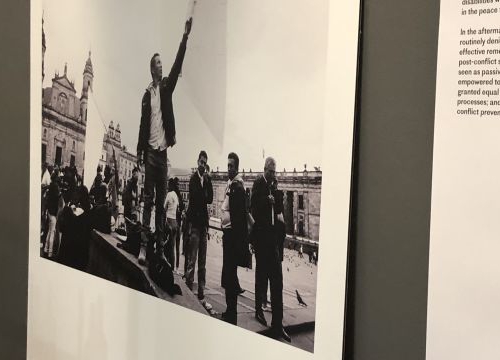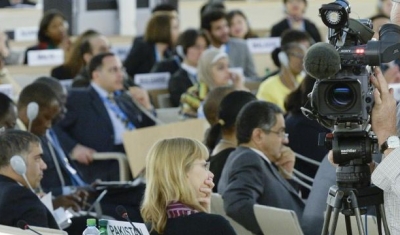Photo Exhibition: Disability and Armed Conflict
Event


Geneva Academy
This photo exhibition by Giles Duley at the Humanitarium features some of the stories that were shown in a larger exhibition back in May 2019.
The stories show not only the devastating impact of armed conflict on persons with disabilities but also how persons with disabilities are often excluded from humanitarian services or reconciliation processes following conflicts.
Showing the Forgotten Victims of Armed Conflict
Despite the devastating impact armed conflict has on persons with disabilities, they remain the forgotten victims of armed conflict.
Determined to bring attention to the lives of persons with disabilities living in armed conflict, we have partnered with the photographer Giles Duley to tell the stories of some of those affected by armed conflict.
Our Publication on Disability and Armed Conflict
This exhibition is part of our research project on the legal obligations of states, armed non-state actors and humanitarian organizations towards persons with disabilities in the conflict setting.
Our publication Disability and Armed Conflict brings attention to the devastating impact conflict has on persons with disabilities and, crucially, highlights that many of the key international humanitarian law (IHL) provisions that serve to minimize the impact of armed conflict – such as the proportionality assessment and advanced effective warnings – are not being applied in a disability inclusive manner, resulting in persons with disabilities being killed, seriously injured or left behind as families flee armed attacks.
Partners and Support
We are grateful to the International Committee of the Red Cross for featuring panels of our previous exhibition at the Humanitarium.
We are also grateful to Diakonia, the Republic and State of Geneva, the Legacy of War Foundation, the Centre de Compétence en Accessibilité de l’Association pour le Bien des Aveugles et Malvoyants, and the Association Dire pour Voir for their support in setting up the original exhibition.








